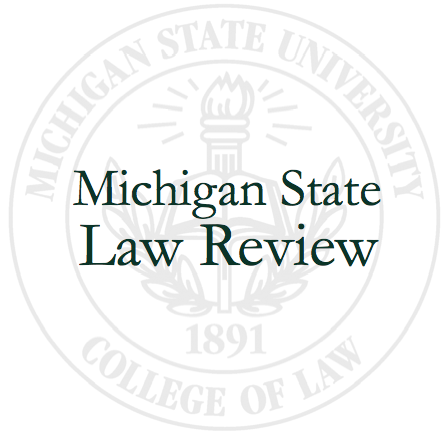About Michigan State Law Review
Established in 1931, the Michigan State Law Review is dedicated to the advancement of scholarship throughout the legal community. The Law Review is committed to publishing innovative legal analysis on intriguing and timely issues. Since the inception of the journal, the Law Review has undergone several name changes. While its name has changed, the Michigan State Law Review’s history and dedication to publishing the highest quality of legal scholarship dates back to the fall of 1931 and the Detroit College of Law.
The Detroit College of Law opened its doors in January 1892 and the first issue of the Detroit Law Review was published in June 1931, aspiring to provide a necessary outlet for constructive legal research in the school and city. The school’s prior publication, The Brief Case, received such overwhelming enthusiasm and requests to contribute from students, faculty, and writers not associated with the school that publishing a law review was a natural next step. In 1938, the Detroit Law Review ceased publication, but was revived for three issues during the 1947-1948 academic year.
In 1975, the journal renewed publication as the Detroit College of Law Review. In 1995, the Detroit College of Law moved to the banks of the Red Cedar River, and joined Michigan State University. Following the move to East Lansing, Michigan, the journal became the Detroit College of Law at Michigan State University Law Review. In 1999, the journal became The Law Review of Michigan State University, Detroit College of Law. For two issues in 2003, the journal was known as the Michigan State DCL Law Review, before becoming the Michigan State Law Review in winter 2003.
Recently, the Michigan State Law Review has steadily climbed the law journal rankings. The law review was ranked 172nd among flagship journals in 2003, but within a decade the law review climbed to rank 42. Today, the journal maintains its position as a highly-ranked flagship journal and is among one of the most rapidly cited legal journals in the country.

